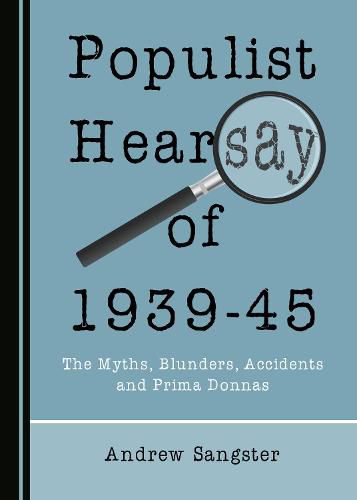Readings Newsletter
Become a Readings Member to make your shopping experience even easier.
Sign in or sign up for free!
You’re not far away from qualifying for FREE standard shipping within Australia
You’ve qualified for FREE standard shipping within Australia
The cart is loading…






World War II produced many histories which differ according to when and by whom they were written. Many historians tend to write in order to justify their home nation. In the recent Brexit debate it was claimed many times that we won the war and we do not need Europe ; politicians were as guilty of this as everyone else. Britain survived rather than won the war single-handedly and managed only because of the Allies.In France, at the L'Hotel National des Invalides, in a museum dedicated to World War II, the photographs and notes tended to imply that Germany was defeated by the French with some American assistance. All countries have their bias and special points of view regarding their shared history of World War II, always somewhat nationally self-centred. This book confronts these nationalistic populist views, and, in places, challenges accepted versions of traditional national histories.
$9.00 standard shipping within Australia
FREE standard shipping within Australia for orders over $100.00
Express & International shipping calculated at checkout
World War II produced many histories which differ according to when and by whom they were written. Many historians tend to write in order to justify their home nation. In the recent Brexit debate it was claimed many times that we won the war and we do not need Europe ; politicians were as guilty of this as everyone else. Britain survived rather than won the war single-handedly and managed only because of the Allies.In France, at the L'Hotel National des Invalides, in a museum dedicated to World War II, the photographs and notes tended to imply that Germany was defeated by the French with some American assistance. All countries have their bias and special points of view regarding their shared history of World War II, always somewhat nationally self-centred. This book confronts these nationalistic populist views, and, in places, challenges accepted versions of traditional national histories.